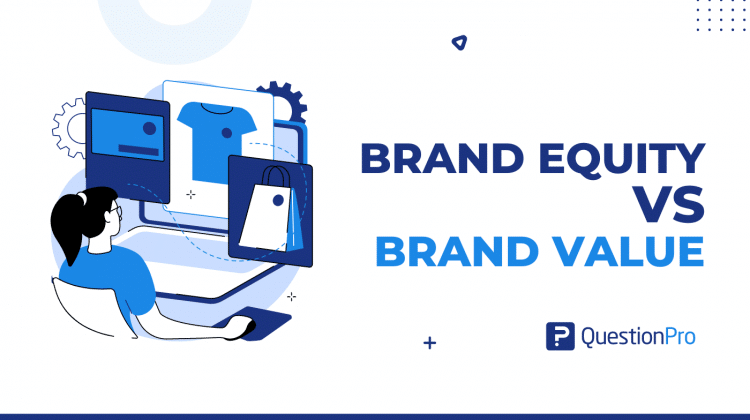 Reading Time: 3 minutes read
Reading Time: 3 minutes read
A brand is more than a name, logo, design, symbol, or combination of those things that help a customer figure out where a product comes from. A brand is a promise, an experience, a feeling, and an expectation.
Regarding brand equity vs brand value, brand equity is not the same as brand value. Brand equity is about the customer because its value comes from what the customer thinks, feels, remembers, and associates with the brand. This is something to think about when it comes to the brand.
On the other hand, brand value decides how much money a company can make from its brand in the market.
Brand equity is something other than something already there; it’s something that a company builds up over time by making products that are hard to replace. The brand is known as the second name for the item itself because of how reliable it is.
LEARN ABOUT: Time to Value
As a counterpoint, brand value is a meaningful way to measure a company’s goodwill and value.
So let’s find out the differences between brand equity vs brand value through this blog.
What is brand equity?
Brand equity is how important a brand is in a customer’s eyes. It is an educated guess of how much a brand is worth, even though the criteria are often hard to measure and intangible. Brand equity also changes how people see the value of a brand.
Brand equity is directly related to how much customers trust a certain brand, among other things that customers think about. This value is based on how customers feel about each brand. The value can be seen when a company puts a recognizable brand name on a product.
LEARN ABOUT: Brand health
What is brand value?
Brand value is the monetary worth of the brand. This is figured out by the market and answers the question, “How much would it cost to buy the brand?” The answer depends on different, changeable factors that can be controlled.
At its core, brand value is a way to measure a brand’s financial worth using data. Doing a thorough market analysis in research can help someone figure out how much a brand is worth.
As was already said, it partially answers the question of how much it would cost to buy the brand and the even more important question of how much someone would pay to buy it. The value of a brand is also directly affected by how much its competitors are valued.
The differences in brand equity vs brand value
After defining brand equity and value, we can now focus on how they differ. Regarding the distinction between brand equity and brand value, the following points are significant:
| Brand equity | Brand value |
| Brand equity is the additional value a product receives due to being manufactured under a well-known brand name. | Brand value is the implied market value of the brand as established by financial and marketing analyses. |
| Brand equity is the customer’s perception and propensity toward the brand. | Brand value represents the brand’s net present worth of potential future earnings. |
| Brand equity is a result of customer recall. | Brand value is based on the brand’s clarity, uniqueness, authenticity, commitment, consistency, performance, and so on. |
| Brand equity solely includes revenue derived from direct and indirect customer-related factors. | Brand value is the total of all earnings. |
| Brand equity shows how well the brand is doing. | Brand value is the sum of all the money that can be made from selling the brand in the market. |
| Your customer’s perception of your brand will determine its brand equity. | Market variables that determine the value of your brand have an impact on brand value. |
Conclusion
Brand equity can raise a brand’s perceived worth in the marketplace, and brand value is the outcome of brand equity. Brand equity is the difference between what customers perceive as a brand value and what a product would be worth without the brand name.
Brand equity is a product or service’s added value. Brand equity affects customer behavior and purchases. Customers’ perceptions of a brand’s reputation, quality, and experience determine its worth.
Brand value is its financial value. A brand’s revenue, market share, and profitability determine its value. Financial analysts and investors measure brand value to help value a company.
QuestionPro CX is a customer experience management software that assists organizations in gathering and analyzing client feedback to improve the customer experience.
QuestionPro CX’s brand equity and value are determined by the quality and effectiveness of its products and services, as well as the brand’s reputation and perceived value in the eyes of its customers and the market.




















